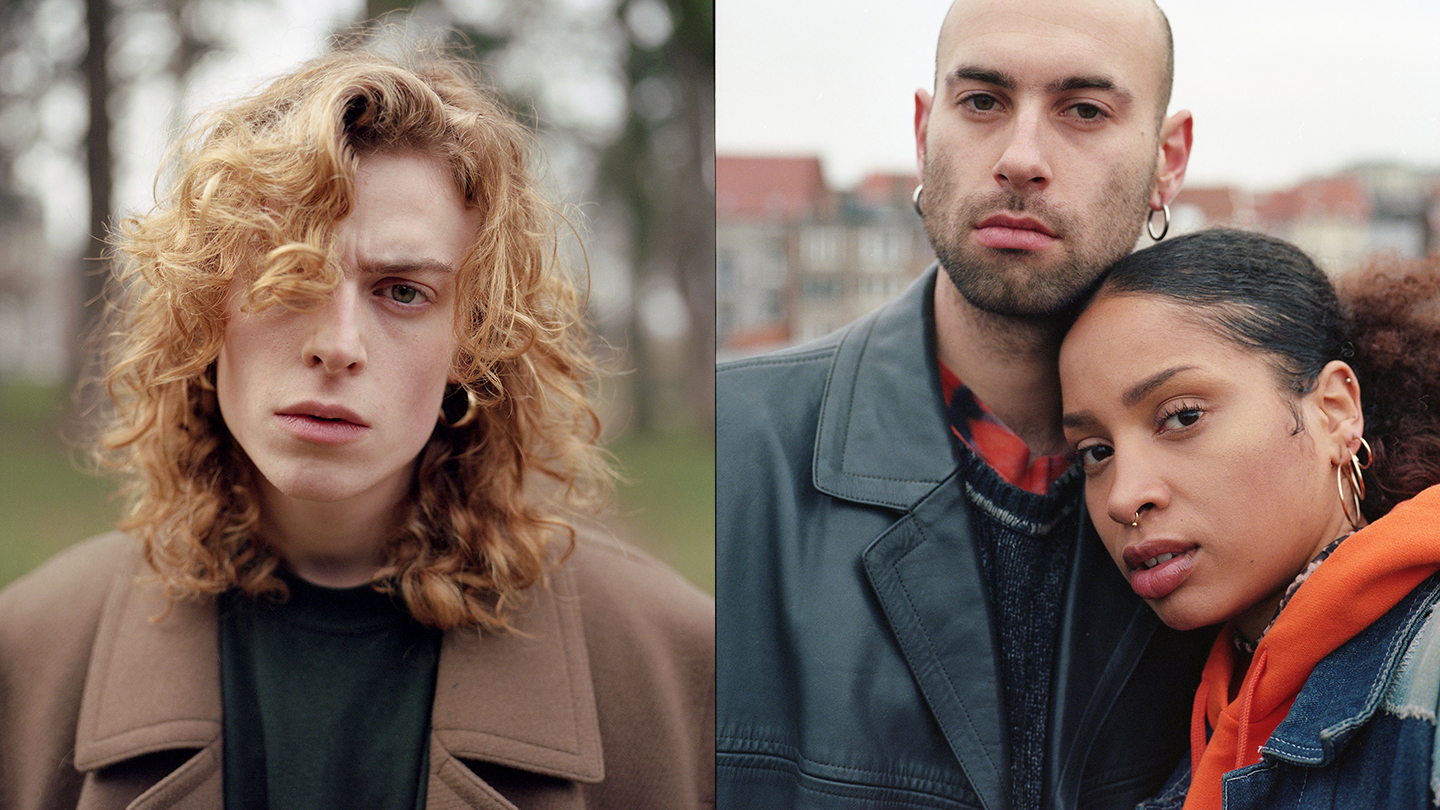This article originally appeared on i-D France
Beer, quiet, the European Union Headquarters, and a statue publicly relieving himself for the benefit of tourists — these are some of the things that might come to mind when you think of Brussels.
But beyond the stereotypes, in every city there are real people making real art, music and poetry. i-D met up with some of these creatives on a stereotypically foggy afternoon in the EU capital.
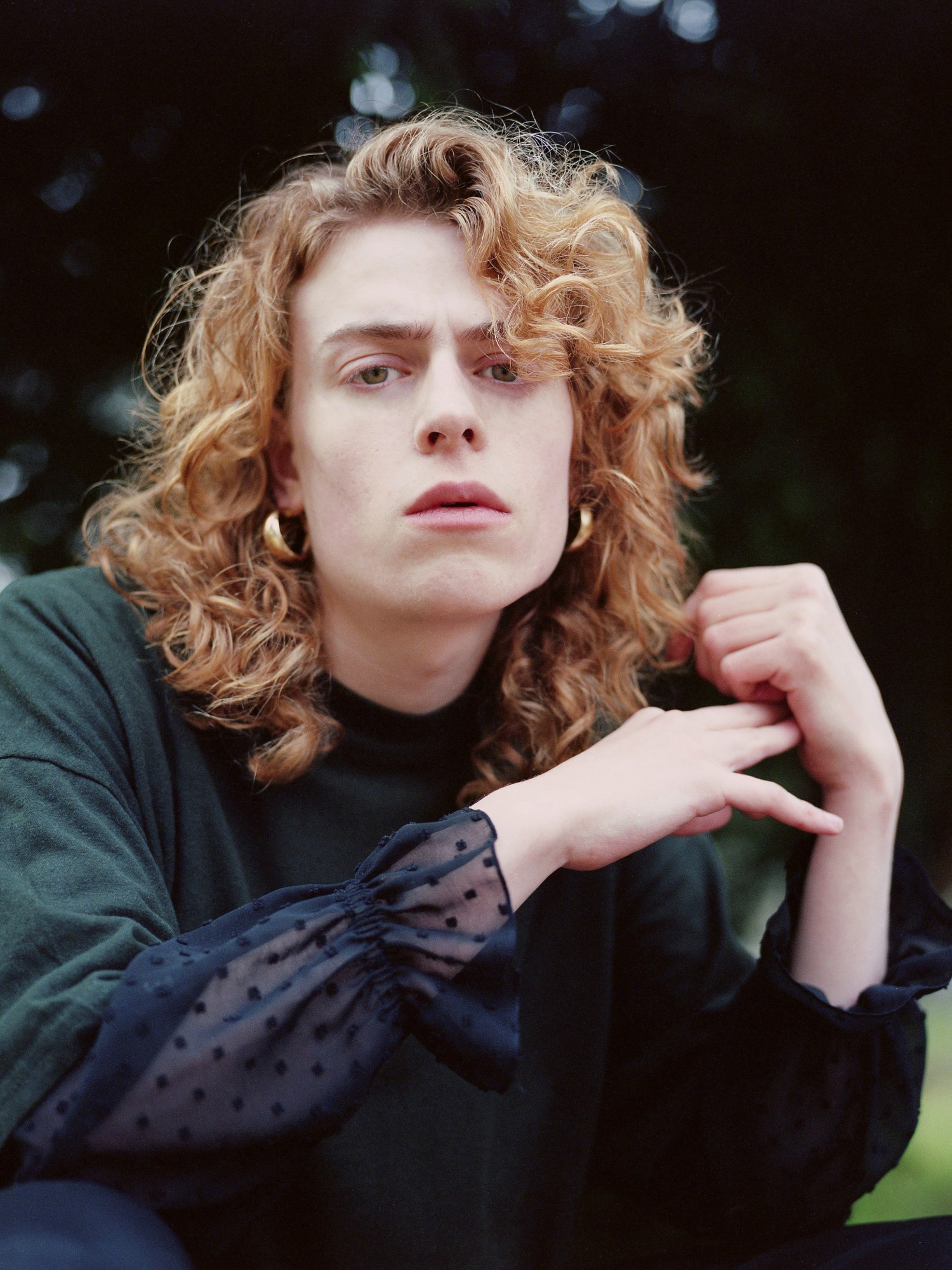
Mathieu Trévisan, 22 years old
Can you introduce yourself?
My name is Mathieu Trévisan, I’m 22 years old, and I have been living in Brussels for the last 5 years. I come from Mons, a small town that I left when I was quite young, because there was hardly anything going on there. I am a third year student at the Academy of Fine Arts.
What is it about Brussels that makes it so central to the international art scene?
It’s a place that encourages artists to take their time to get things right. Also, socially, I think Belgians are still a quite welcoming people, which I think adds to the multiculturalism of the place.
There are a lot of art collectives being created in Brussels. Can you yourself imagine joining your practice with that of other artists?
No, I don’t think so, I am more of the kind of person who locks themselves up to think. I’m not very modern.
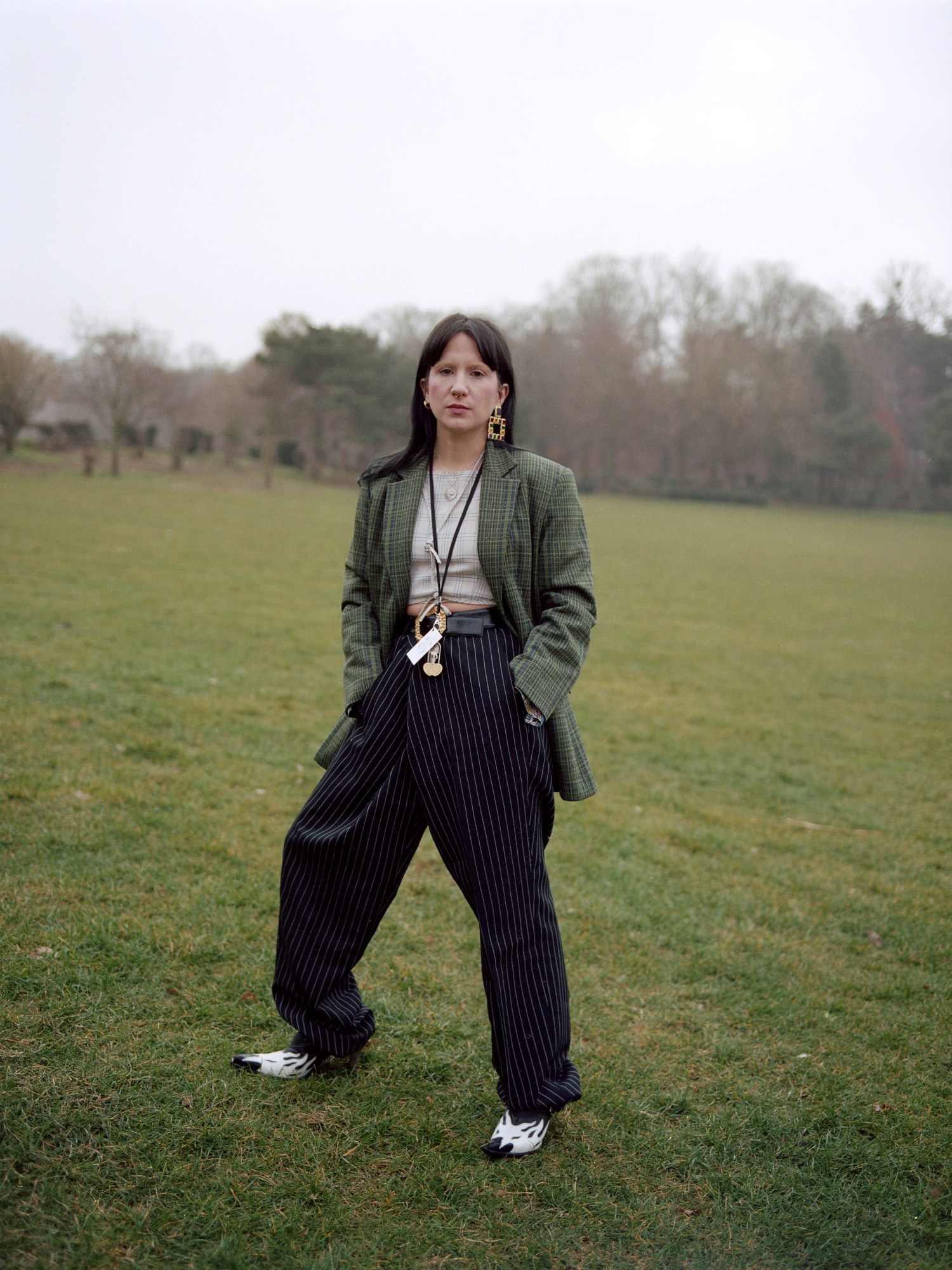
Summer Satana, 27 years old
Can you introduce yourself?
My name is Tiphaine Larrosa, I’m 27 years old. I am French, I grew up in Bordeaux where I studied Fine Arts. Now I live in Brussels. I have a solo music project called Summer Satana.
Can you tell me a bit more about this project?
Summer Satana started when I was still at art school, where I made a post-apocalyptic film with mates of mine in which I played Satana, the evil twin of another character — a complete stereotype, called Natasha. I took on the character again within a band called Sex Body Ache, and this time called her Summer Satana. The group lasted two years. And then I went solo.
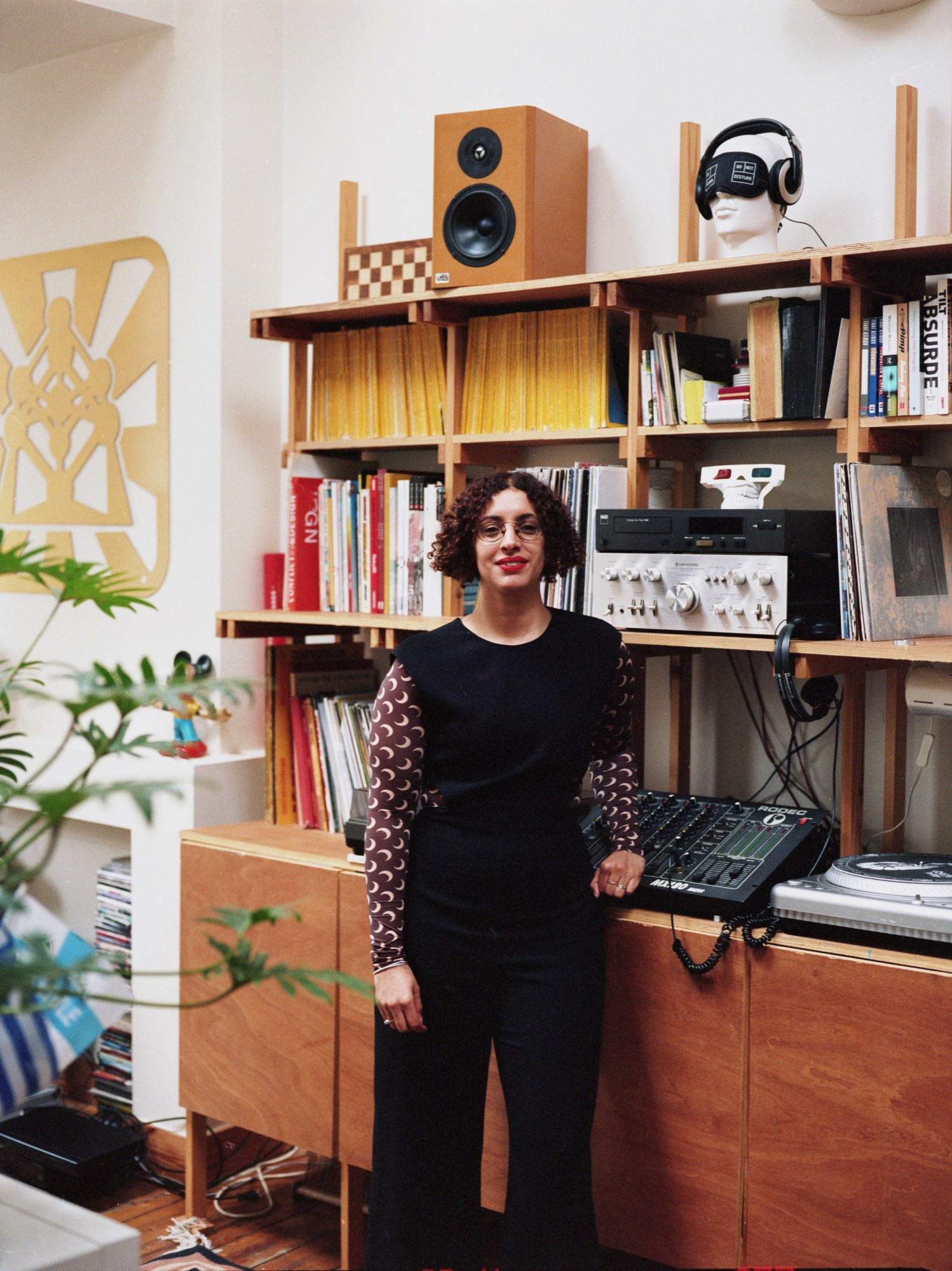
Soumaya Phéline, 35 years old
Can you introduce yourself?
My name is Soumaya and I’m 35 years old. I’m a Brussels girl, born and raised. I’m a DJ and also work as a graphic designer.
How did you get into DJing?
I was in a video library for documentary films that used to be called L’Excellence, with two of my colleagues, and we started messing around with mixing vinyl from film soundtracks. I never intended to become a DJ, but I did enjoy meeting my mates in bars and getting paid for it at the same time. One thing leading to another, I started playing more and more electronic music and inviting friends to play with me. I loved the idea of sharing, which is how I got into organising parties.
How do you envision the future of Brussels nightlife?
Over the last ten years we’ve seen a lot of venues shut down for safety reasons and entire neighbourhoods bought off by developers. The face of nightlife has changed. Parties have a real social purpose, and they can generate a lot of cash flow, as you can see in the example of cities like Berlin. I think we have to recreate that.
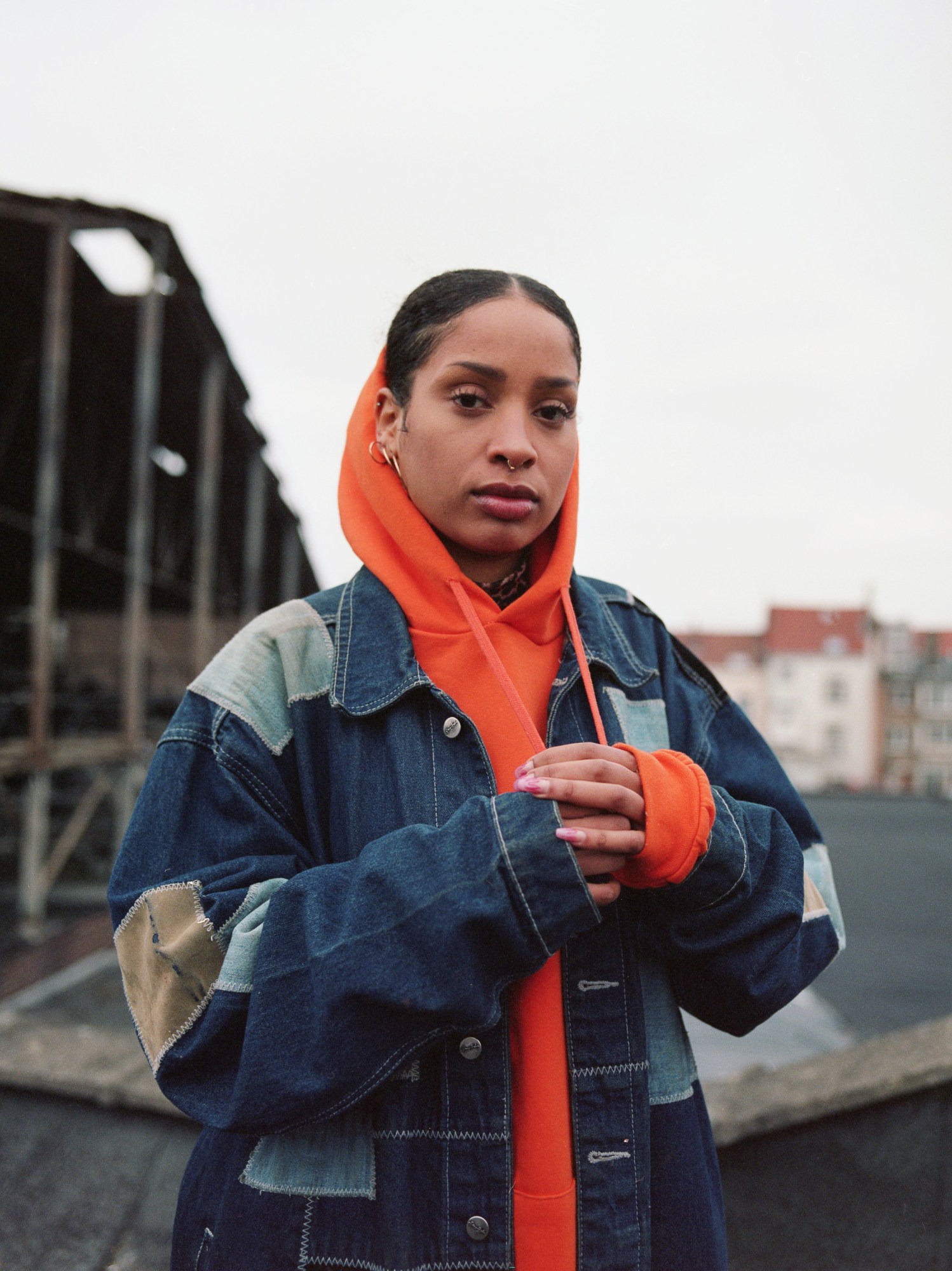
Celia Wu Tangu, 31 years old
Can you introduce yourself?
My name is Célia and I live in Brussels. At the moment, I’m involved with two collectives – Bledarte, with four other girls and Leaving Living Dakota, which I co-founded with my friend Seelik.
Can you first tell us a bit about Bledarte?
When I first moved to Brussels, I took part in many talks about racial and feminist issues. I met a few girls through that and we formed this collective. We are exclusively non-white girls with a taste for art and a desire to share that. The idea was to create spaces for artists of colour and clubbers. Our first objective was to create a festival with people with different racial backgrounds and not make it a hip-hop thing — which is usually what black and Arab people are reduced to.
What about Leaving Living Dakota?
I met Seelik in Switzerland, and we crossed paths again at the Fine Arts university when I came to live in Brussels. Clubs aren’t so good here, and Switzerland had given us quite an education when it came to raving, so I think we had a shared feeling of frustration. Very soon, we were drawn to the idea of putting on exhibitions which clashed with the standards of the at scene here.
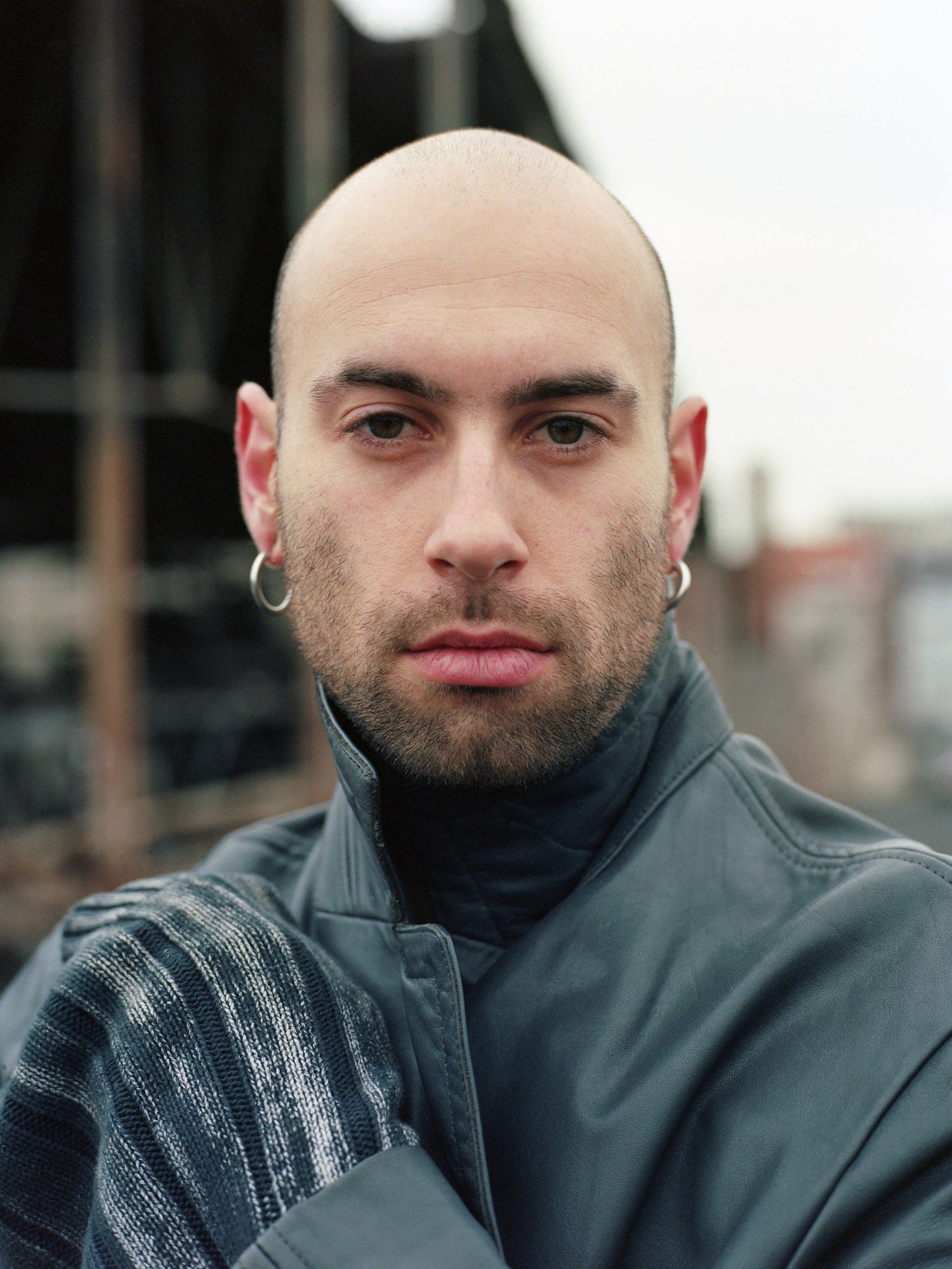
Golce Dabbana, 26 years old
Can you introduce yourself?
My name is Seelik, I’m 26. I’ve been living in Brussels for just over two years. I moved here for an artist’s residency. These days I organise events with my friend Célia, under the name Leaving Living Dakota.
What role do parties play in your life?
Parties are my life! Creating an atmosphere, a symbiosis of bodies and space… that’s something that I find very important. With Leaving Living Dakota, we set out to give people what we ourselves were looking for in parties. As organisers, we’re always left a bit frustrated because we never get to enjoy it to the full. But it’s beyond cool to be able to offer that space to people who want the same thing as we do and who therefore come out of it truly grateful.
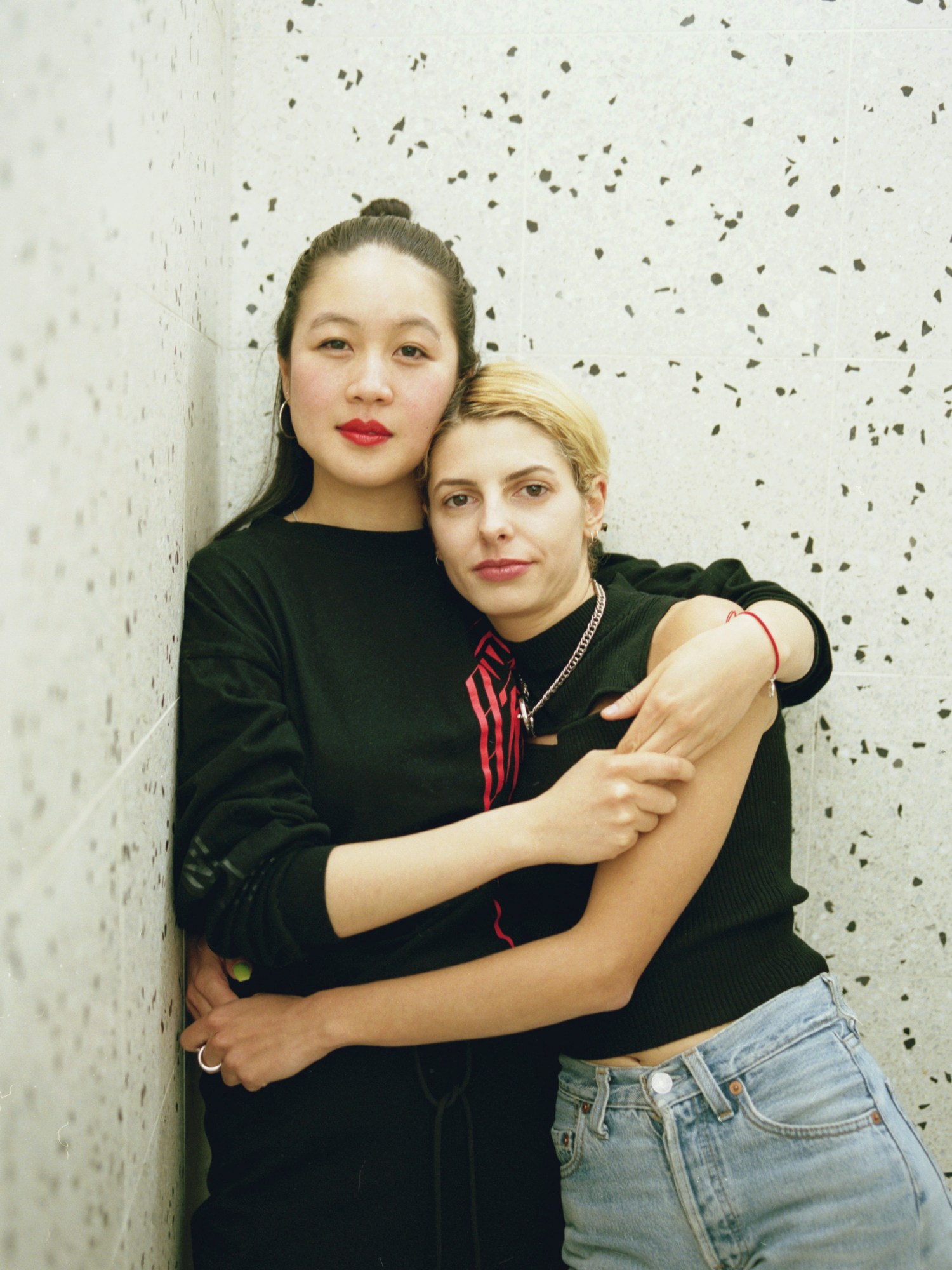
Liyo Gong, 30 years old, Stephanie Kevers, 32 years old
Can you introduce yourselves?
Liyo: My name is Liyo, I’m from Liege, but I’ve been living in Brussels for 12 years.
Stephanie: I’m Stef, I live in London, but I’m from Brussels.
How did you set up your collective, Heartbroken?
Liyo: We’ve always liked to party and to play music. But we started DJing together a bit by chance, and we ended up taking it really seriously. At the time, we were getting bookings in very few spaces in Brussels because of the music we were playing: alternative club music, with many different genres mixed in. This is why we set up the Heartbroken nights: We wanted to be able to play R&B or trap with a dance or techno background without having to go for a specific kind of night.
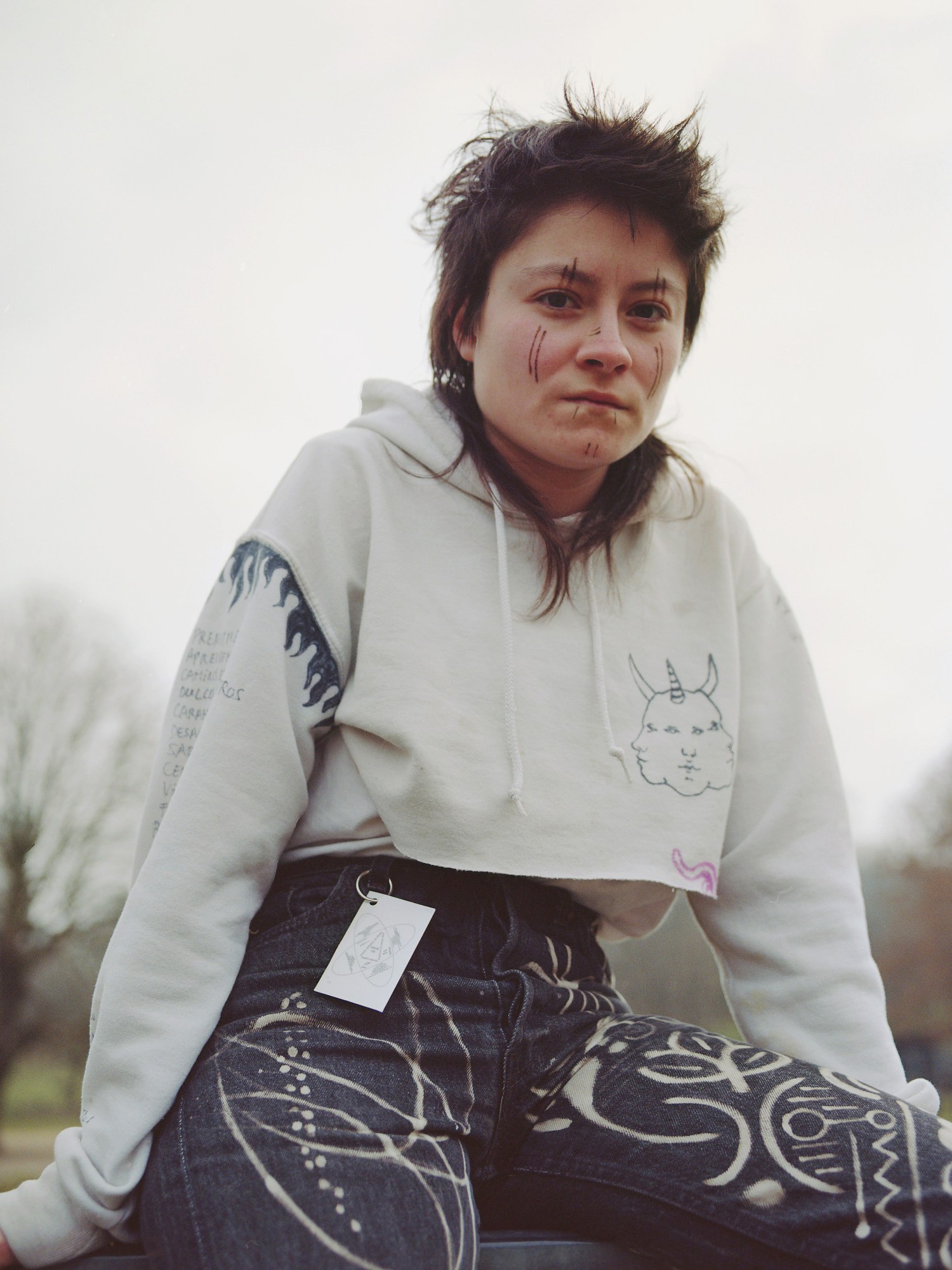
Luz de Amor, 24 years old
Can you introduce yourself? My name is Luz de Amor, I write about the things I do and the things I see. I’m from Colombia, but everyone thinks I’m Spanish. I grew up in Sweden, in Colombia, in Spain, in France, in Portugal and here. I came to Brussels because I wanted to get into in the School of Graphic Research (ERG), but I was turned down. I stayed anyway, to give the city a second chance, and I quickly grew to live at its pace.
What is this pace like?
I get very exhausted here, because I go out so much. I don’t like being alone, and if I stay at home what use am I to the world? I try to attend as many events as I can, and there’s a lot going on culture-wise. I think there’s something very humble about Brussels, something very mixed and inclusive.
What are you up to when you’re not partying?
Outside of parties, I invest my time in volunteer work, particularly for the LGBTQI+ cause. I’ve been a volunteer at the Rainbow House and for queer festivals such as the Pink Screen.
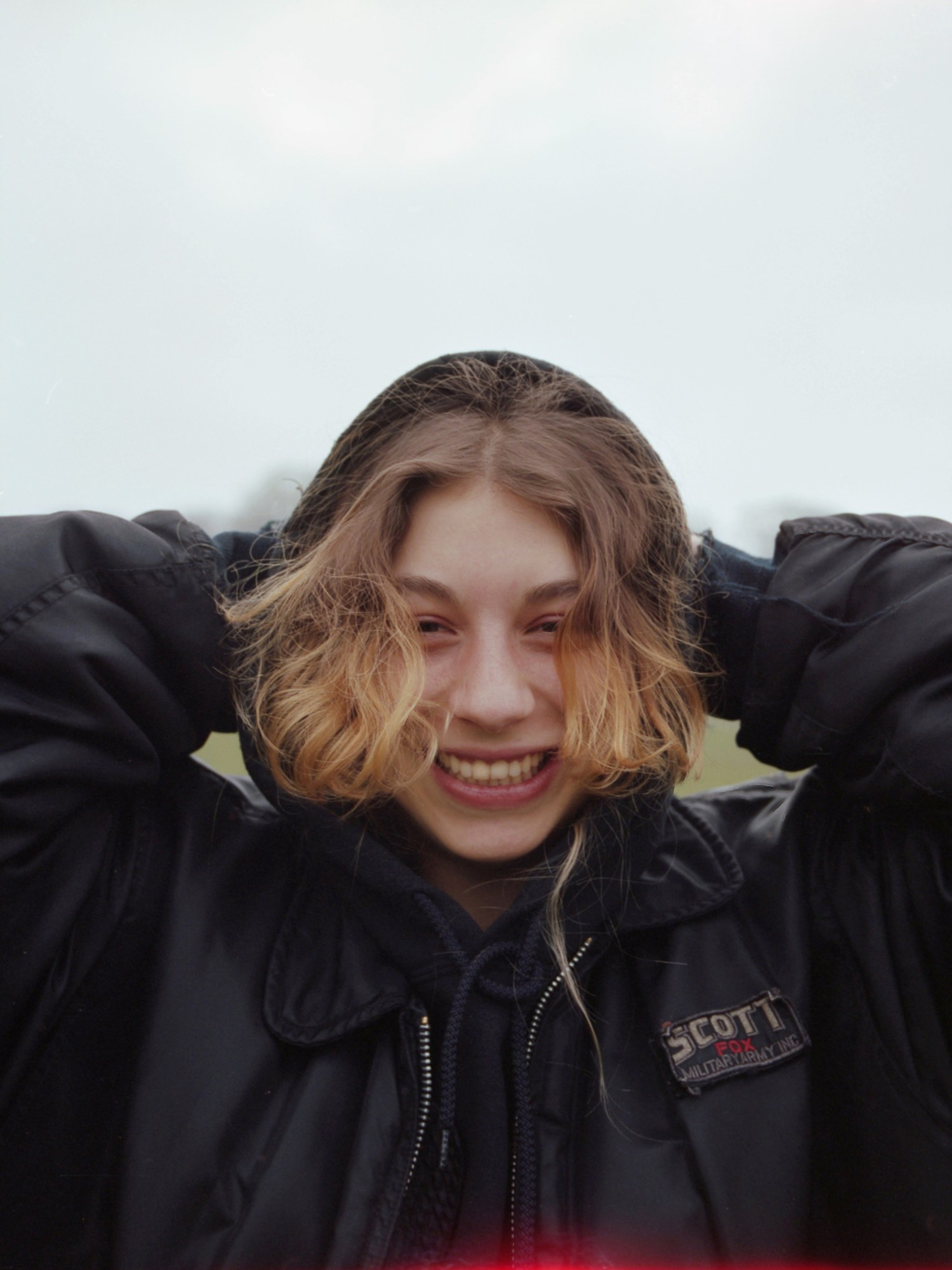
Rage White Ghost, 25 years old
Can you introduce yourself?
I’m Serena, I’m a tattoo and video artist and I belong to a collective named Chats Noirs. I’m French, and I moved to Brussels a year and a half ago.
Was setting up a collective an obvious move for you?
It’s never that easy. In our collective, everyone has a very strong personality, and each person is quite fixed in their ways. It’s hard to exist individually but when we manage to give life to something all together, it’s such a pleasure that it encourages me to keep pushing.
Has living in Brussels had any effect in how you express yourself?
Yes, absolutely. When I was living in Paris, I was extremely influenced by the whole Parisian echo chamber, by what I saw on the Internet… Here, no one knows me, so I can be whoever I want. This enabled me to start something from scratch. In Paris, I feel, image has become more important than the quality of someone’s work. Here, things are much less flashy, there are loads of collectives doing their thing in attics and that’s good enough for them.
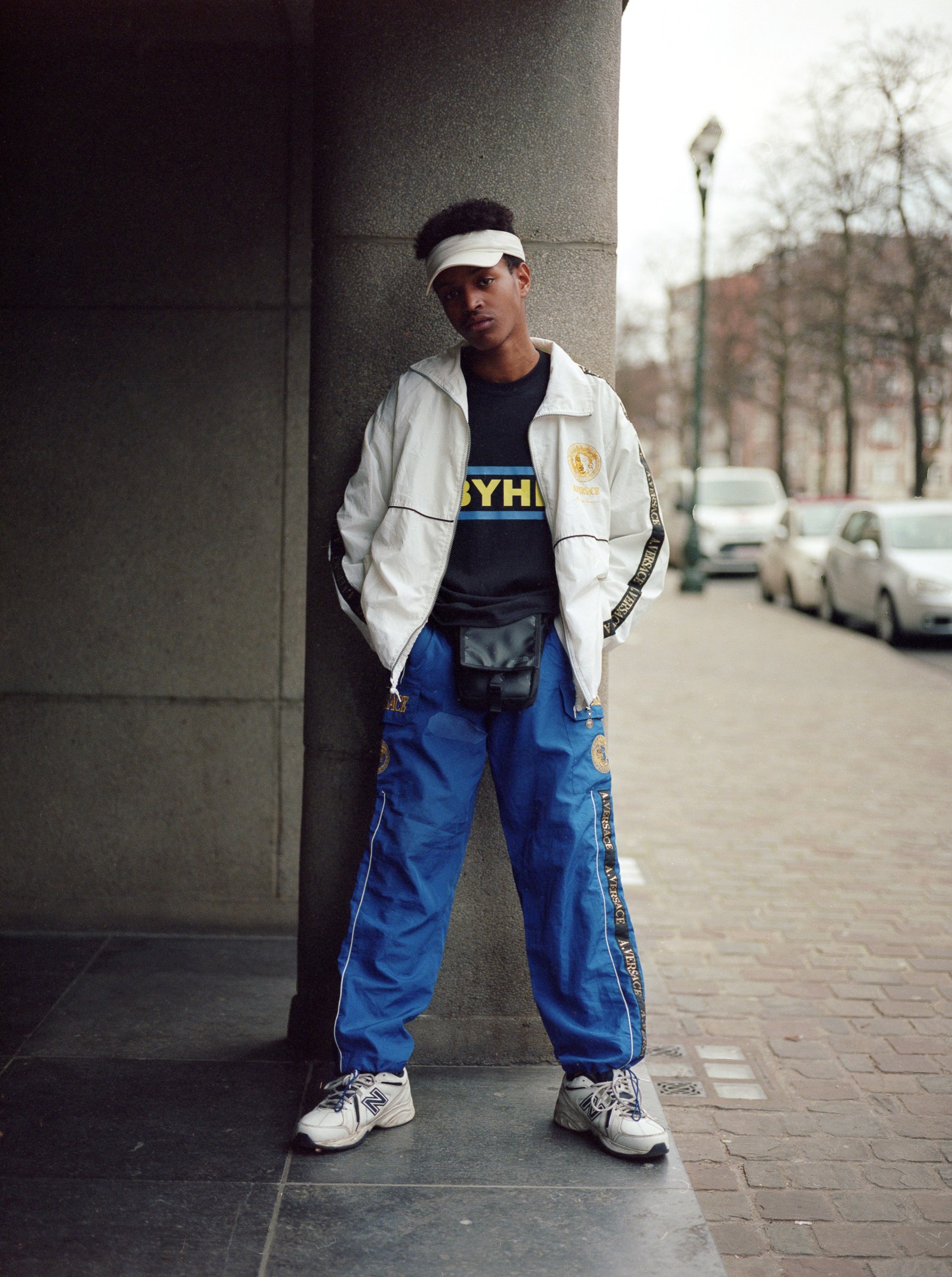
Lord Gasmique, 20 years old
Can you introduce yourself?
I’m Lord Gasmique, a young rapper from Brussels, and poet of the future. I started rapping about 4 years ago.
How would you define Belgian rap?
Brussels is so small that everyone really knows everyone else, even outside of rap. You know someone’s cousin, their brother, their mailman… So obviously I think that this feeds into the image that people have of us from abroad. We’re very keen on solidarity, but then again imagine: if we were at war within such a small space, things would be mental! We’re all really big on love, we all carry Brussels in our arms and this results in something very beautiful.
The small town effect can also have negative effects, don’t you think?
Definitely, especially if like myself you like to be out all the time. Do you know the word “xsaar”? Here, it means going out, having a blast. I love to do that but at the same time I can’t completely let go, when I realise that someone particular is there and that it might end up on social media.
Credits
Photography: Victor Pattyn
